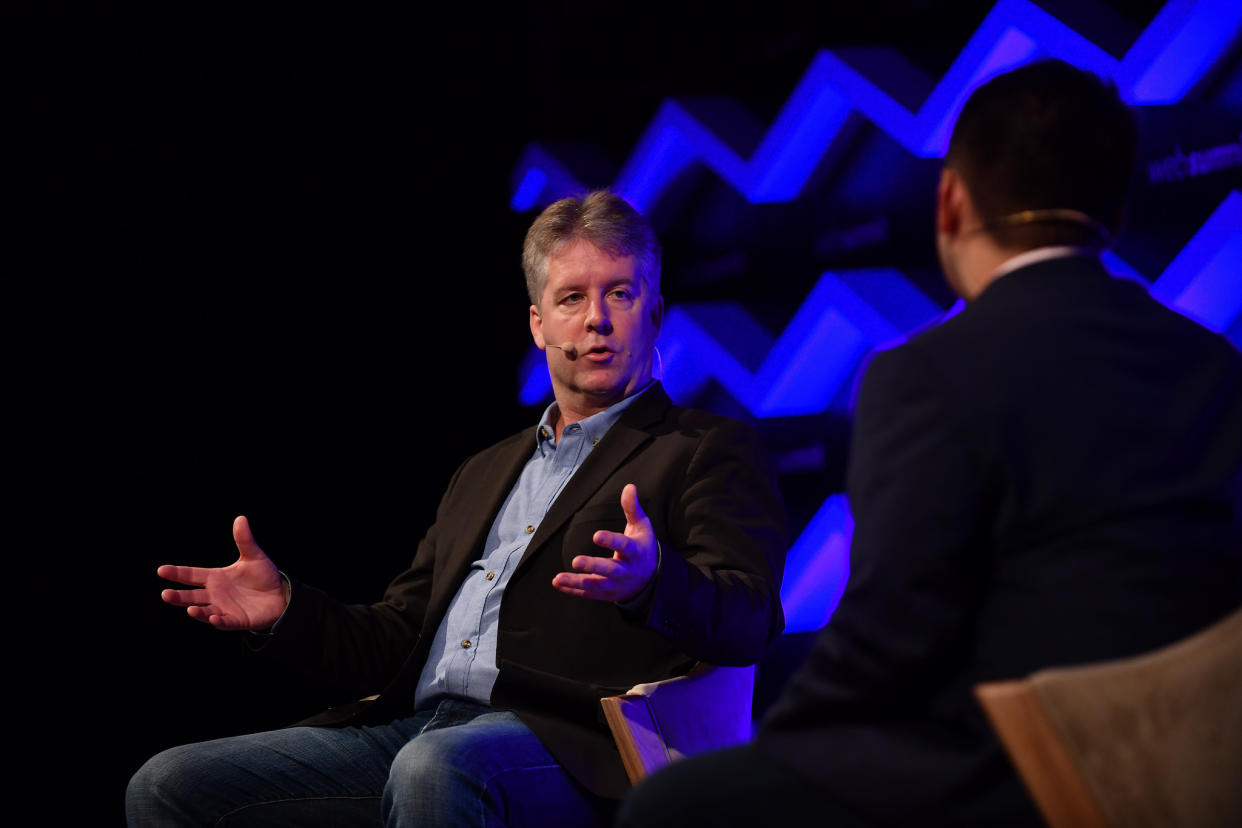Amazon's Alexa chief: You'll have 20-minute chats with Alexa one day

Amazon VP of Alexa Al Lindsay has a bold goal for Alexa, the popular voice-controlled personal assistant: one day, Alexa should be capable of holding conversations up to 20 minutes long.
“A lot of what people ask Alexa for today are fairly short interactions,” Lindsay told Yahoo Finance at the annual Web Summit tech conference, held this week in Lisbon, Portugal. “Longer conversations aren’t yet the norm.”
Indeed, use any one of the voice-controlled personal assistants currently on the market, such as Alexa, Siri, Google Assistant or Cortana, and you’ll quickly realize Lindsay and his competitors still have a lot more to work to do before five-, 10- or 20-minute conversations are possible.
For now, interactions with Alexa are a start-and-stop affair where users instruct it to perform one or two of over 25,000 different tasks: telling you the latest news, calling an Uber or playing the latest Nick Jonas album off Spotify. But what Alexa can’t do, for instance, is book an entire trip to the Bahamas in one go. You can do bits and pieces — book a hotel, check your flight status — but it’s not as intuitive as booking it yourself online yet or talking to an old-school travel agent.
That’s still the stuff of Lindsay’s longer-term, unfulfilled dreams: a truly versatile “Star Trek”-like computer that accomplishes virtually anything you throw at it with a simple voice command.
“To truly realize that vision, you’ll want a number of things: you’ll want to have it everywhere, be able to talk to it from anywhere, be able for it to do all of the things you would want an intelligent assistant do for you, and ultimately do it in a very conversational way,” Lindsay added.
A long road ahead
Getting there will require a lot of work accomplished by the 5,000 or so Amazon employees who now work on Alexa in places as far-flung as Germany and India, as well as outside developers. Perhaps realizing that making Alexa a conversational whiz was a herculean task, Amazon readily shares Alexa’s software development tools with third parties.
Last year, Amazon announced the Alexa Prize, a $2.5 million competition for university students who develop “social bots” using Alexa’s technology that can convincingly chat with people about pop culture and news events for up to 20 minutes. This March, Amazon announced the Alexa Fund, a $100 million venture capital fund that gives cash to companies and developers who drum up new “skills” that let Alexa perform new tasks.
“If we can actually get to the point where it’s truly conversational and equivalent to speaking to another human, anyone will be able to interact with it effectively,” Lindsay explained. “You won’t have to learn how to use a touchscreen or how to use an app. You just speak to it.”
The Amazon executive’s goal of having Alexa become truly ubiquitous could become reality faster than many think. The voice-controlled assistant started simply enough in 2014 when the first Echo speaker launched, but if this year’s CES in January was a good indicator, Alexa could soon be everywhere you want it to be. There were Alexa-compatible smartphones, baby monitors, air purifiers, self-driving cars, even refrigerators.
It’s an ambitious effort, though hardly an altruistic one. The more Alexa-enabled devices there are in the world – and Lindsay tells Yahoo Finance there are already “tens of millions” of Alexa-enabled devices now — the more people interact with Alexa. And the more engaging Alexa becomes, the more likely they are to use Amazon’s wide array of services and buy things, whether it’s a new album off Amazon Music or dinnerware from Amazon.com.
After all, Amazon has a 76% market share of the home smart speaker market in the U.S., according to Consumer Intelligence Research Partners, and the Seattle tech giant clearly wants to keep it that way.
—
JP Mangalindan is Chief Tech Correspondent for Yahoo Finance covering the intersection of tech and business. Email story tips and musings to jpm@oath.com. Follow him on Twitter or Facebook.
More from JP:


